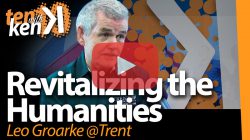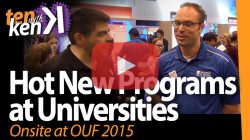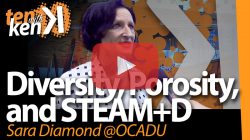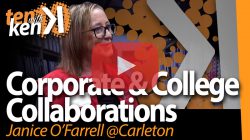Preserving the Humanities
Maintaining Enrolment in a Time of Career Anxiety
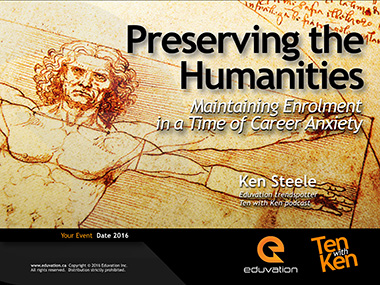
Worldwide, enrolment in arts and humanities programs is dropping more precipitously than any other area of higher education. Some of this is caused by inevitable demographic pressure, but the more worrisome trend is the growing careerism of applicants and students. Faced with an uncertain job market and the prospect of significant student debt, students and their parents are getting more and more impatient (and short-sighted) about the short-term return on investment for their education. Professional schools and career-oriented programs with solid immediate employment prospects are seeing steadily rising applications, while the humanities and social sciences struggle with dwindling applicant pools, and in the case of more remote campuses (in the north, the prairies and the Atlantic provinces), major declines in enrolment.
It doesn’t need to be like this. As a former English major and doctoral student, Ken Steele believes passionately in the value of the humanities to cultivate the individual, prepare them as global citizens, and yes, even give them valuable skills for the labour market. Humanities graduates have been trained to think critically and creatively, to apply research skills and structures of thought, to develop persuasive and logical arguments and communicate them effectively. Employers know the value of these skills, and report frustration in finding them among new hires. So part of the solution to sustaining enrolment in the humanities is better expressing their career utility, although some traditionalists may find that distasteful.
Even more challenging, however, is rethinking the humanities to make them more relevant to the 21st century. Traditional disciplinary silos are artifacts of a century ago, often treated as written in stone when in fact they should be more fluid. Some of the most exciting research fields are interdisciplinary, many employers would like more interdisciplinary graduates, and cross-disciplinary studies are often more appealing to students as well. Work-integrated learning has come to the humanities in many institutions worldwide, as have more active teaching and learning models, more concentrated and engaging class models, and more stimulating and energizing approaches to assignments and evaluations. Preserving the humanities does not necessarily mean leaving them entirely unchanged.
Ken Steele is Canada’s leading higher education monitor and futurist. He co-founded Academica Group, created the Academica Top Ten, manages Eduvation Inc, co-authored Canada’s first book on enrolment management, and hosts a weekly webcast, Ten with Ken, that reaches thousands of subscribers on a dozen platforms. Ken brings his unique perspective and insight to a broad range of audiences, from faculty and instructors, boards and senior administration, to information technology staff, concerned parents, and Canada’s most powerful corporate CEOs.
Ken can present this topic as a keynote or lecture, or as a workshop to engage teaching faculty and/or instructional support staff and students in discussion to grapple with this challenging issue. In either format, it is sure to stimulate much discussion and new ideas for you and your institution to consider.
Here are some relevant episodes of 10K, for a sense of Ken’s approach and as potential examples to share with participants in advance:
All contents copyright © 2014 Eduvation Inc. All rights reserved.
